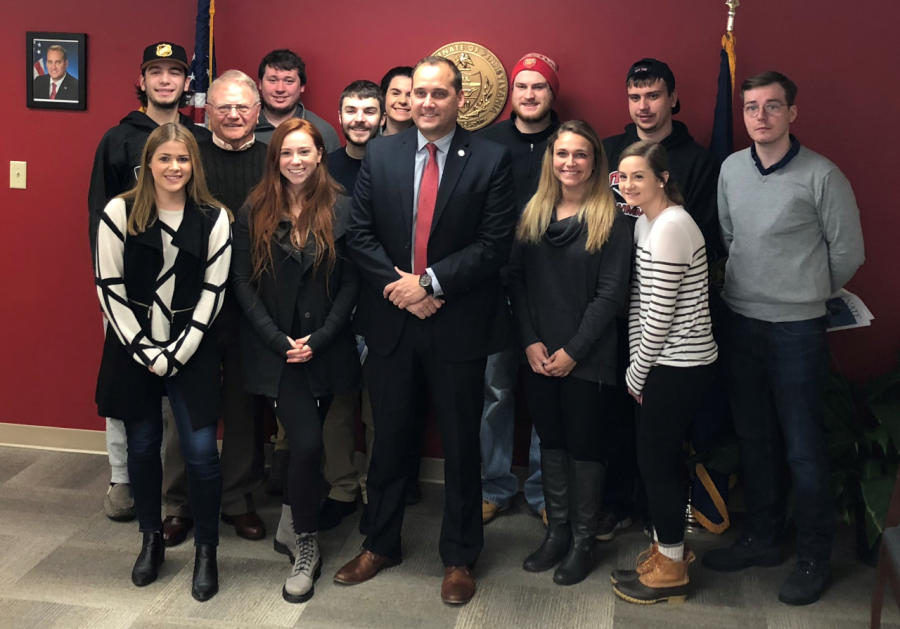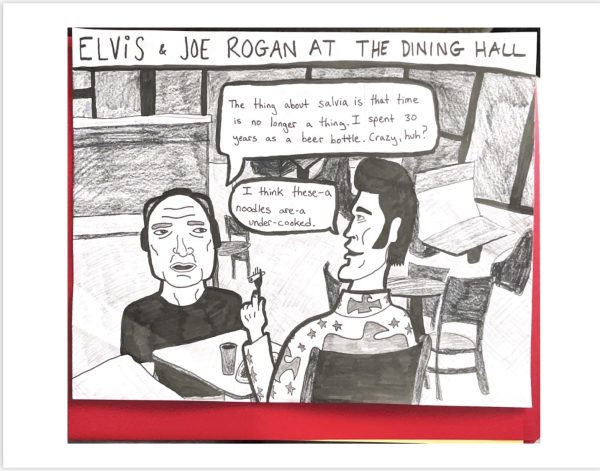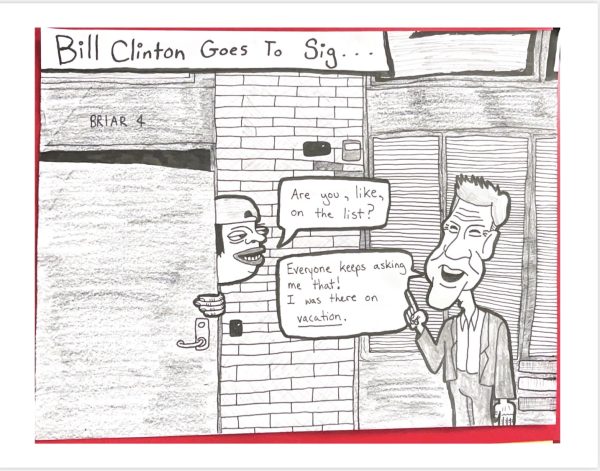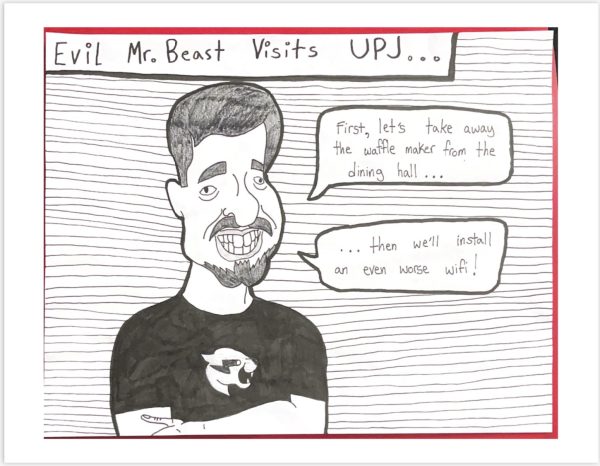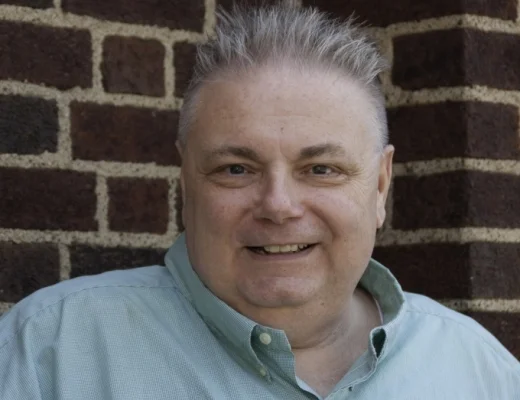Teachers develop engaging techniques
State Sen. Wayne Langerholc gave a lecture to professor William Kory’s Political Geography class.
October 10, 2019
While monotone lecturing may be considered the “default” teaching method in college classrooms, some Pitt-Johnstown professors are going a step further to help students kiss goodbye glazed-over eyes and boredom.
Marketing professor Skip Glenn said while teaching an 8 a.m. class is not for the faint-hearted, he enjoys the challenge to enhance his teaching methods.
“8 a.m. is a tough time for young folks as their circadian rhythm skews to later hours.
“Because of this, professors need to come ready with tools to unlock thinking and keep students engaged both inside and outside the classroom.
“One of the promises we make in marketing is to deliver fresh every day. It sounds like we work for a grocery store, but, in reality, in the marketing industry, the best practices are in continual evolution with the consumer.
“This means we need to give our students the latest best practices, theory and experiences to load their bag of skills and knowledge for success out in the wild.
“In entrepreneurship classes, I give students the opportunity to speed date their ideas with fellow students.
“In my social media war room class, we practice tweeting when certain brands get cheeky, like Oreo or Taco Bell.
“Students need to respond defending their brand and nicely put the attacking brand or customer in their place.”
Glenn said he aims to provide hands-on experiences and analogies that help students unlock consumer behavior mysteries and understand the energy they need to deliver daily.
Glenn is not alone in his enthusiasm for enlivening lessons for students.
Adjunct professor Bradley Holuta said, outside of teaching, he works as an attorney for the firm Marcus & Mack.
Holuta said he implements real-life cases from his law profession into his classes.
“My legal aspects of health care class spends about three weeks on medical malpractice and negligence, which involve personal injury cases.
“After covering the elements of what comprise a negligence claim, students are presented with a personal injury fact pattern, which describes wrongful conduct on the part of two separate defendants and damages to the injured victim.”
Holuta said his students are assigned into groups and function as a jury by discussing the case, the defendants’ liability and the money awarded to the plaintiff.
“I think any method which helps give real world or hands-on experience to concepts is helpful. I try to make the legal concepts seem applicable in everyday life.
“For instance, if a person is stopped at a red light and looks at his phone and is issued a ticket for violating the no-texting-while driving law, is that really a violation?
“What if he switched gears to park? Does it matter that the light was red? What if he pulled onto the side of the road but stayed in drive?
“That sort of analytical thinking is what a lawyer does, and those skills are what I try to teach in my class. The simulated jury trial is one of that.”
Holuta said students have reacted positively to lessons involving real-life cases because they add authenticity to classroom discussions.
“Students know that this isn’t a fabricated example. This is something they could deal with years down the road in their own career, which is exciting,” Holuta said.
In addition to spicing up their own teaching methods, some professors choose to extend an invitation to other community members to perk student engagement.
Geography professor William Kory said he organizes days for local political leaders to lecture in his classes.
“In the past, we’ve met and spoken to (U.S. Sen.) Bob Casey, (State Sens.)Wayne Langerholc and John Wozniak.
“We’ve also spoken with state representatives Brian Barbin and Jim Rigby, all three Cambria County commissioners, the county coroner and others.
“One of our former students, Joe Sernell, ran for office as a representative of the 7th Pennsylvania Congressional District.
“He was able to share his experiences with the class and provide valuable information on the process of running for a political office.
“I plan to continue providing students with the opportunity to meet and discuss the electoral process with people who have gone through the experience,” Kory said.

